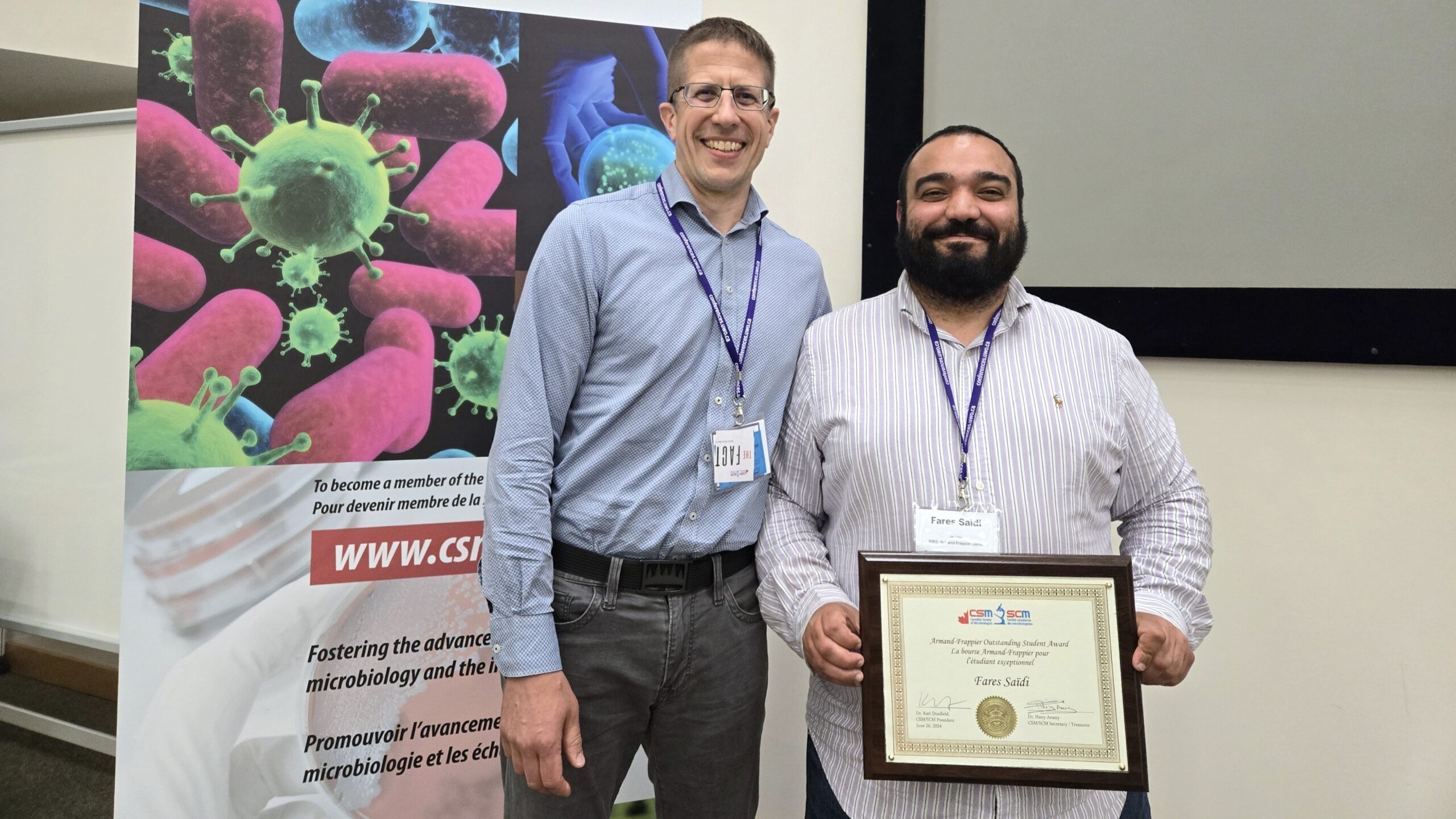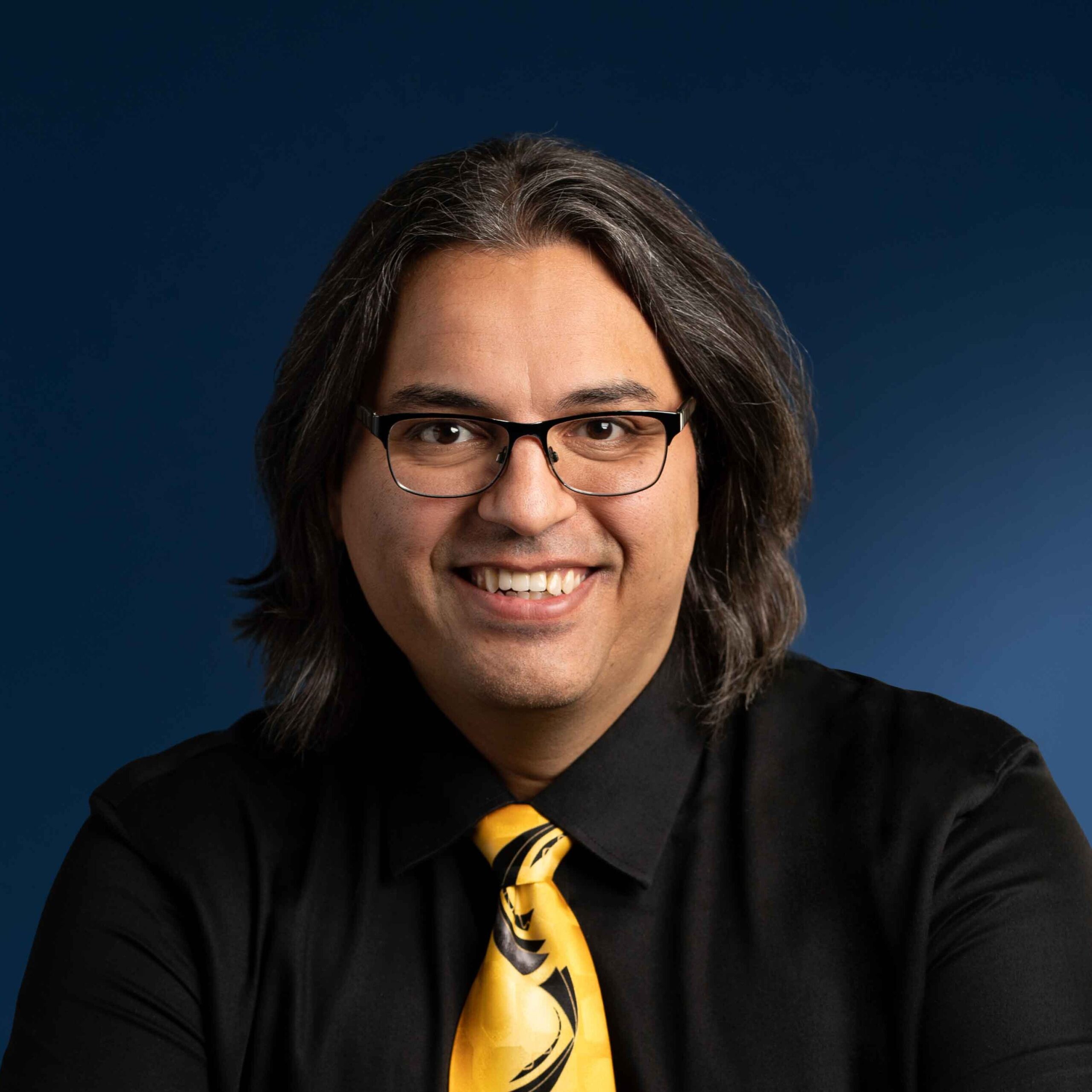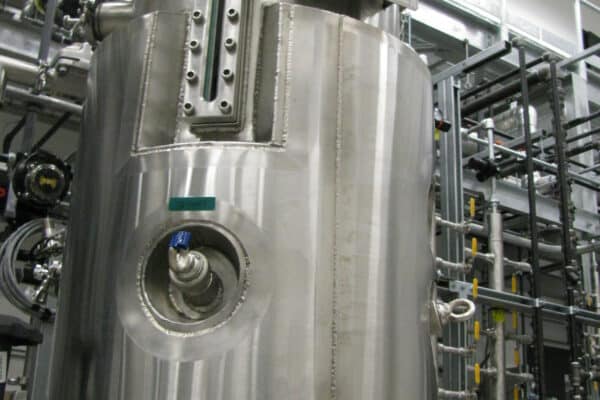- Awards and Distinctions
The award recognizes the Ph.D. student’s exceptional achievements.

Dr. Jonathan D. Van Hamme, First Vice-President, CSM (left) with Fares Saïdi (right) Credits: Canadian Society of Microbiologists
The Canadian Society of Microbiologists (CSM) has awarded its Armand Frappier Award to Institut national de la recherche scientifique (INRS) graduate Fares Saïdi. He is the very first INRS student to receive the honour.
The newly minted doctor of biology conducted his research at the Armand-Frappier Santé Biotechnologie Research Centre, in the laboratory run by Professor Salim Timo Islam, a specialist in microbial biochemistry.
Since 1997, the prestigious pan-Canadian distinction has been granted yearly to a graduate student for outstanding achievements in publications, involvement, and research grants. The aim of the CSM is to advance microbiology, forge ties between microbiologists, and raise the profile of the discipline among the next generation of scientists.
The award was presented to Fares Saïdi during the 73rd Annual Conference of the CSM held at Western University, where he was invited to present his work.
“I am very honoured to receive this award, which recognizes not only the work I put in during my doctorate, but also the work of all the people involved. This award holds special significance for me, given that I obtained my doctorate at the centre founded by Professor Armand Frappier.”
Fares Saïdi, INRS Ph.D. graduate in biology
The conference, one of Canada’s largest microbiology events, brought together some 600 delegates from Canada, the U.S., and Europe, including professors, postdoctoral fellows, and students of all levels.
Fares Saïdi also recently received the prize for best doctoral dissertation from the INRS Foundation for his work, “Elucidation of the roles of secreted polysaccharides in bacterial multicellularity.” He is particularly interested in the formation, organization, and propagation of bacterial communities, as well as the production of biosurfactants, antibiotic tolerance, and the identification of drug targets for the development of new antimicrobial compounds.
Achieving this recognition would have been impossible without the unwavering support of my exceptional professor, Professor Salim Timo Islam, who received the award himself back in 2013. He supported me throughout my thesis and gave me the opportunity to work alongside him and benefit from his vast knowledge.”
Fares Saïdi, INRS Ph.D. graduate in biology
During his Ph.D. studies, Saïdi’s research led him to publish eight primary scientific papers, including five as first author. One of his papers was selected for the cover of the journal Molecular Microbiology.

“This award is a testament to Fares’ hard work, his dedication, and most importantly, the profound curiosity he displayed during his graduate studies. I couldn’t be prouder of all he has accomplished, both in and out of the lab, since I’ve known him. From Fares’ fundamental research, new insights have been obtained on a wide range of topics in microbiology”.
Salim Timo Islam, Professor at INRS
The publications involving Fares Saïdi have been cited more than 90 times and viewed over 21,000 times in four years. He has presented seven invited oral presentations and nine posters at national and international conferences and benefited from collaborations in France, the U.S., Belgium, and India, earning him the INRS International Outreach Award. During his doctorate, he also mentored a number of the next generation of students and played an active role in student life at his research centre.
Armand Frappier Award
In addition to developing the expertise of Quebec’s French-speaking scientific community, Dr. Armand Frappier, microbiologist and founder of the Institut Armand-Frappier, which later became INRS’s Centre Armand-Frappier Santé Biotechnologie, laid the foundations on which the mission and vision of our research establishment are based.



